Every day morning there is an unbeatable challenge that is facing many moms – BRUSHING THE TEETH OF A TODDLER. I have heard from mothers how they start their day with their toddler with all the tantrums, fights and yelling to brush the teeth. Here in this post, I will give some tips and a creative technique which has worked wonders in fixing tooth brushing problems with toddlers.
Managing Toddlers
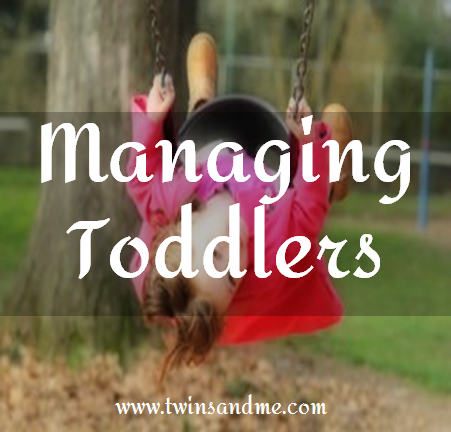
“Children are little philosophers, building their own theories of knowledge”
– Jean Piaget.
There are two questions posed at me all the time by my friends.
As a Pediatric Dentist, “How do you treat pediatric dental patients? Isn’t this a strenuous job?”.
As a mother of two, “Managing two kids at home is a really tough task! Aren’t you exhausted?”
My answer to both the questions are the same.
Dealing with children is not difficult. It’s different !!
Children are always children. They are not miniature adults. A child’s way of thinking about and viewing the world is quiet different from that of an adult. In this context, question yourself. Whose mind needs to be re-framed first?
Definitely not the child’s mind. It is OUR mind which has to re-frame.
Tips to handle tooth brushing problems with toddlers

In most of the houses there is always an early morning wrestling match between the mom and the toddler.
“Brush , Brush , Brush!!!”
“No Mommy!!”
“Open your mouth don’t clench it!”
“Don’t bite the brush!”
“OMG! Spit and don’t eat the paste!!!”
“Don’t run away. You have to rinse your mouth!!”
“Noooo! I’m going to play Mom!!”
And finally the mother will be exhausted!
Do you think this is a never ending wrestling match ??
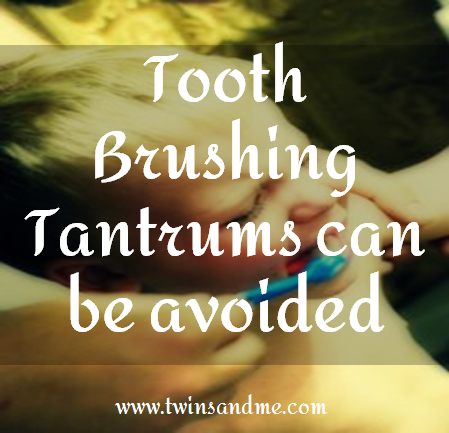
NO……. You can make it FUN!
Here are few tips to tackle tooth brushing problems with toddlers. I believe these will make your little angels to compare with “little smiles”.
Communicate in toddler language
To communicate successfully with a toddler, it is necessary to understand their intellectual level. Younger children understand the world in the way they sense it through their FIVE primary senses. Concepts that cannot be seen, heard, smelled, tasted or felt for example time and health are very difficult for the toddler to grasp.
Hence use immediate sensations rather than abstract reasoning while discussing concepts like oral hygiene or preventing tooth decay with the toddler and make them understand the value of oral health.
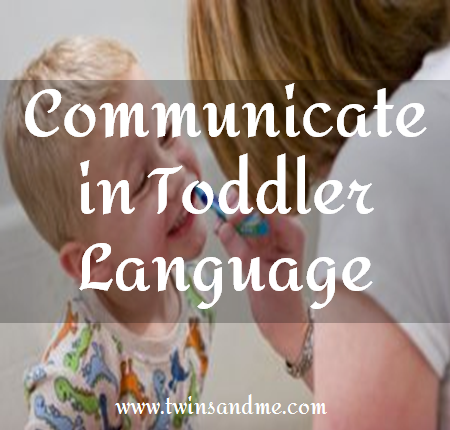
For example, you might explain your toddler about the goodness of brushing like this,
“Brushing removes food particles, which in turn prevents bacteria from forming acids, which can cause tooth decay” and so on.
Your toddler will have trouble in understanding a chain of reasoning. Rather your kid is much more likely to understand,
”Brushing makes your mouth taste good. You will feel the teeth to be clean”.
These statements rely on things your toddler can taste or feel immediately.
You can even mention brushing as TOOTH WASHING to your kid. This will make them realize they are going to wash and clean their teeth.
Recommended : How to choose the right toothbrush for your child?
Make Brushing sessions Fun
Here is a technique to make brushing sessions with your toddler more fun. This can really help to fix brushing problems with toddlers.
- Pick seven different colored brush for seven days in a week
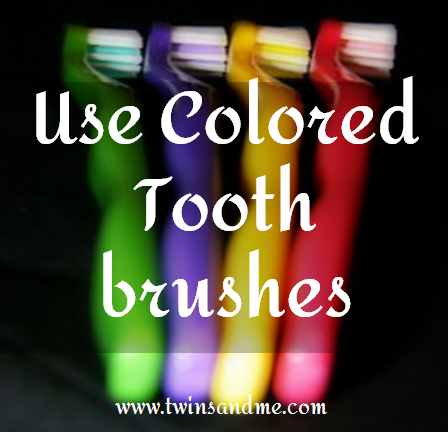
- Record seven different rhymes in the mobile
- Prepare a chart (Free Printable is available at the end of this post)
- Stick this chart near the mirror
- Make your toddler to stand in front of the mirror
- Take the paste and the colored brush for that day
- Play the rhymes for that day in your mobile
- Brush your child’s teeth till the music gets over
- Ask your toddler to mark brushing finished (or shade with that day’s color) for that part of the day (day / night) in the chart
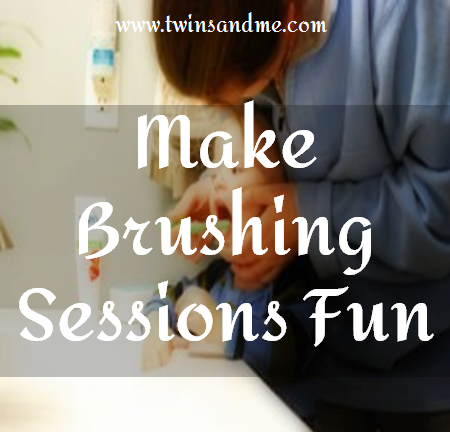
With this technique, your toddler will not only do brushing but also learn colors, days in a week and rhymes.
You can even customize this chart with your own creative skills and watch your toddler get excited about brushing sessions.
Make brushing as a lovable start of the day and not as an order.
Happy brushing time with your toddler!
You can post your queries in the comments section. I will answer as early as possible.
Free Printable
Make your toddler’s brushing time easy with this fun filled Tooth Washing Time Table.
Pin this for Later
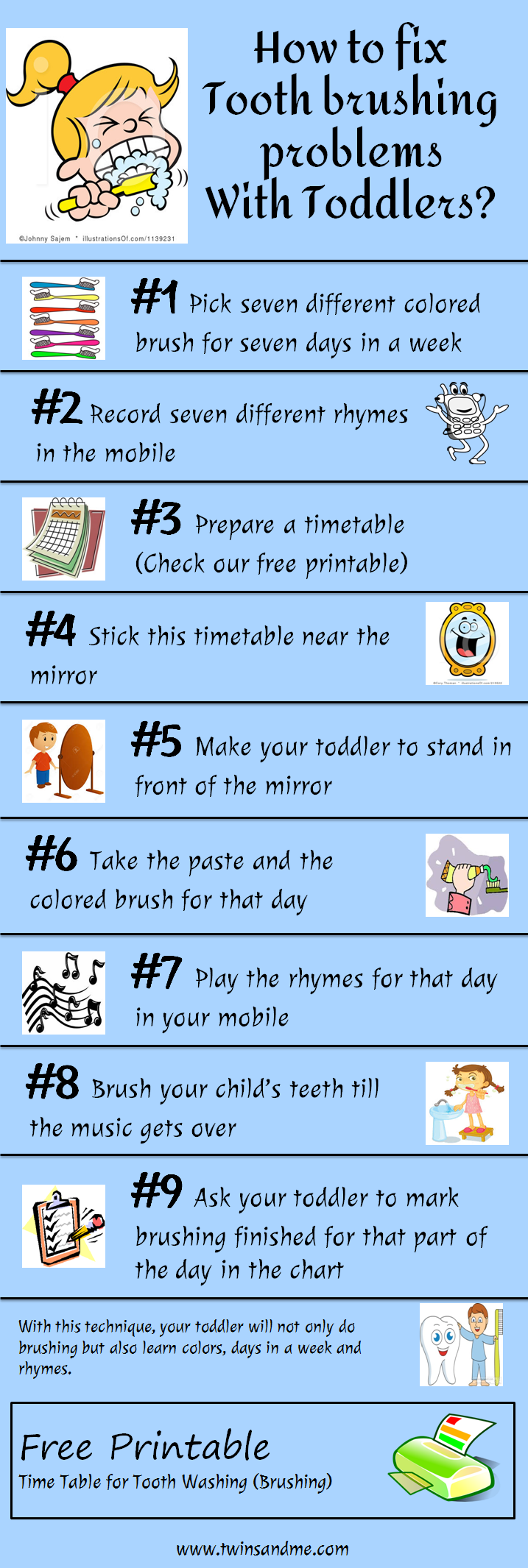
*This post includes affiliate links.
Image credits : Main image by Brush your teeth – 50/366 via photopin (license) ; Managing toddlers by Mindy Gerecke via Foter.com / CC BY-SA ; Tooth brushing tantrums can be avoided by FabulousTerrah via VisualHunt.com / CC BY-NC-SA ;Communicate in toddler language by makelessnoise via Foter.com / CC BY ; Use colored brushes by dennoir via Compfight cc ; Make brushing sessions fun by jacobsas via Compfight cc
Note : Added text to the original images used in this post.
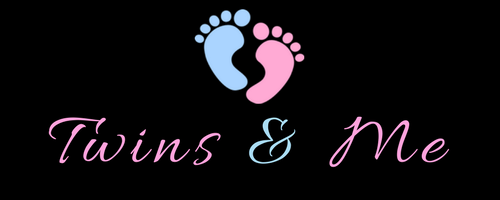

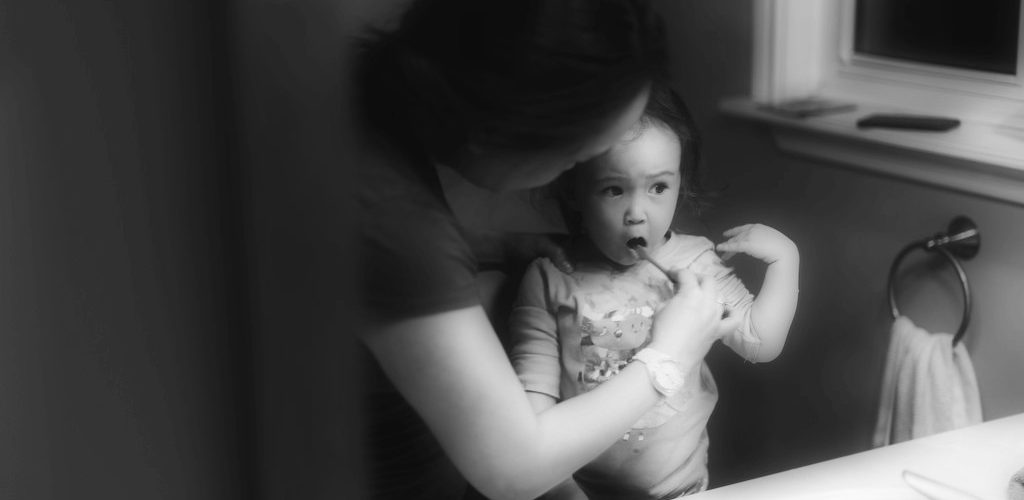
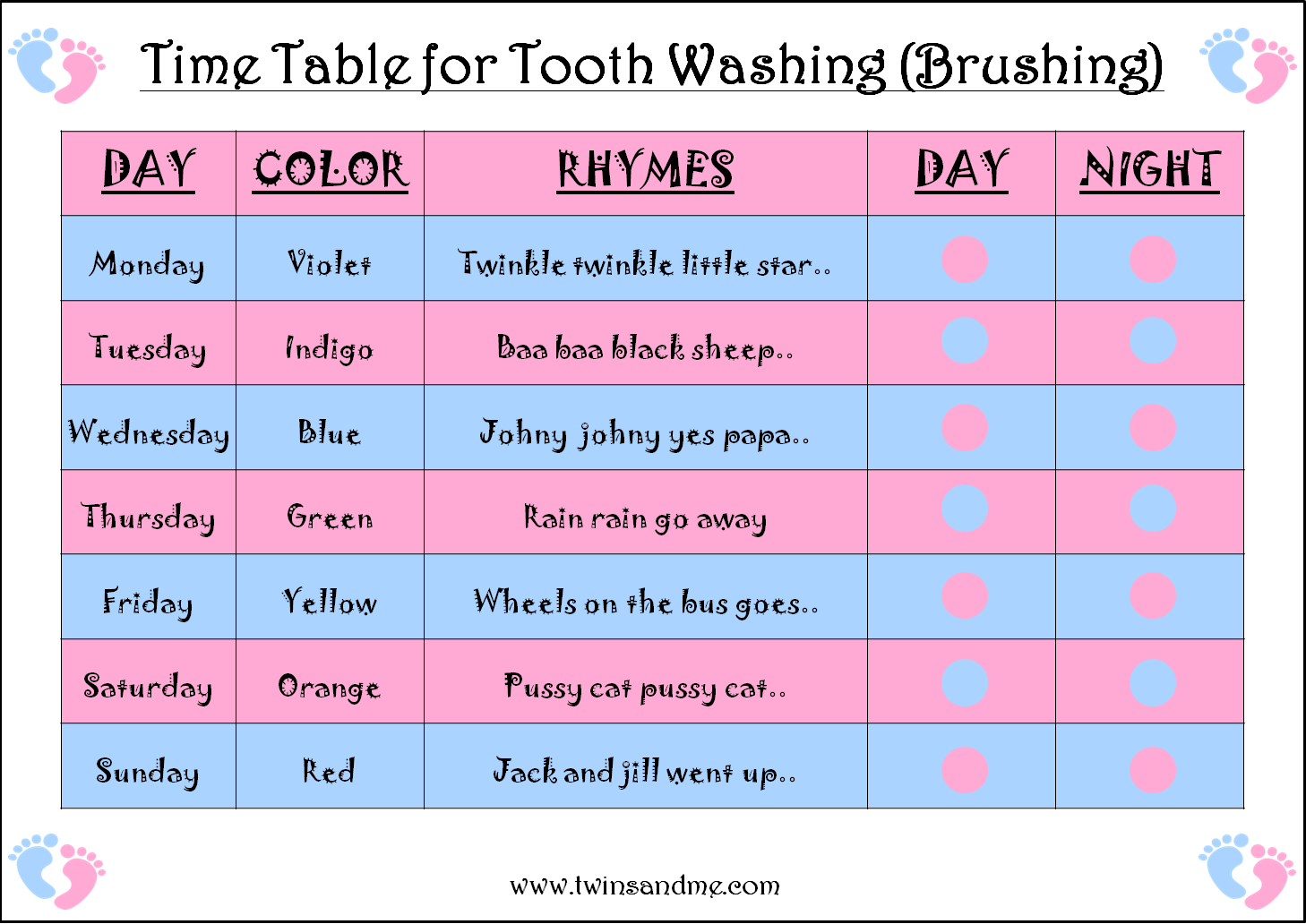
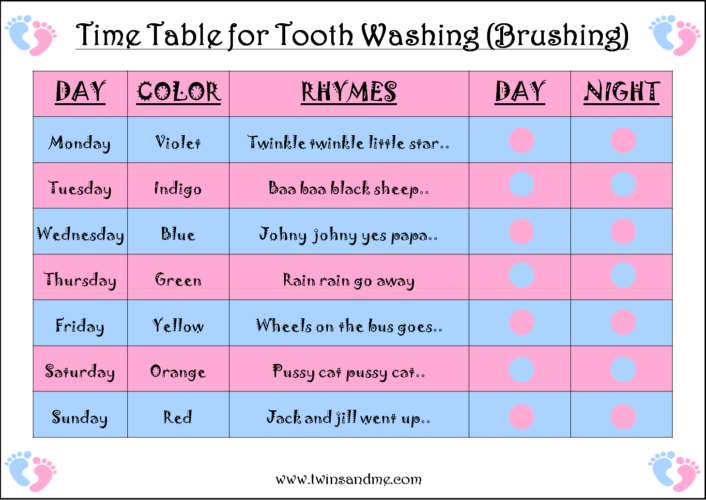
Nice idea of having different colored brushes assigned for each day of the week. Fortunately, I didnt have trouble with my kids when it came to brushing but I can understand how toddlers can be!
What age do you recommend for starting brushing?
Marissa,
When the front teeth erupts (6-9 months), use a finger tooth brush, which fits your index finder. Gently do wet brushing(wash the brush in water, no need of a tooth paste).
Then when the back teeth erupt, use a small headed tooth brush with good grip. Continue wet brushing until the baby is 2 years. If your baby is reluctant to do wet brushing, you can use a peanut size of NON-fluoridated tooth paste(as the baby might swallow).
After 2 years, you can start with fluoridated tooth paste but again just a peanut size of it for every brushing session.
Thanks for the reply!
Love the way you added table to the article. My baby will getting her first tooth anytime now 🙂
Thank you and advance wishes for ur little one who s going to smile with her first little pearly tooth soon 👍👏
Great tips! Teeth brushing is a struggle with my 19 month old for sure. Do you recommend two times a day at this age? Sometimes we forget in the morning..
“Catch them Young”. Start cultivating the good oral habits earlier. Implement brushing twice slowly at this age and regularize it after two and half years, once complete set of milk teeth erupts.